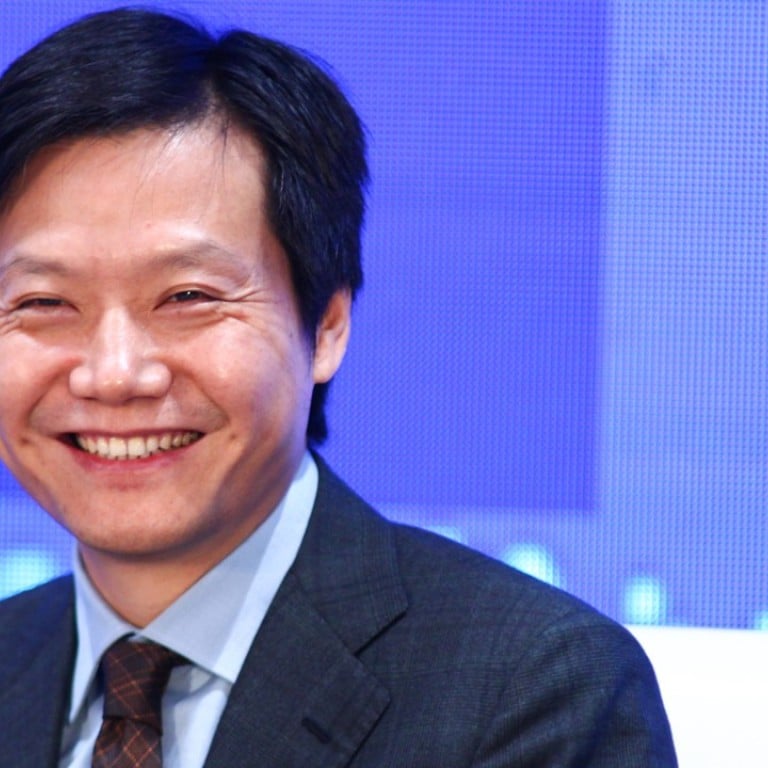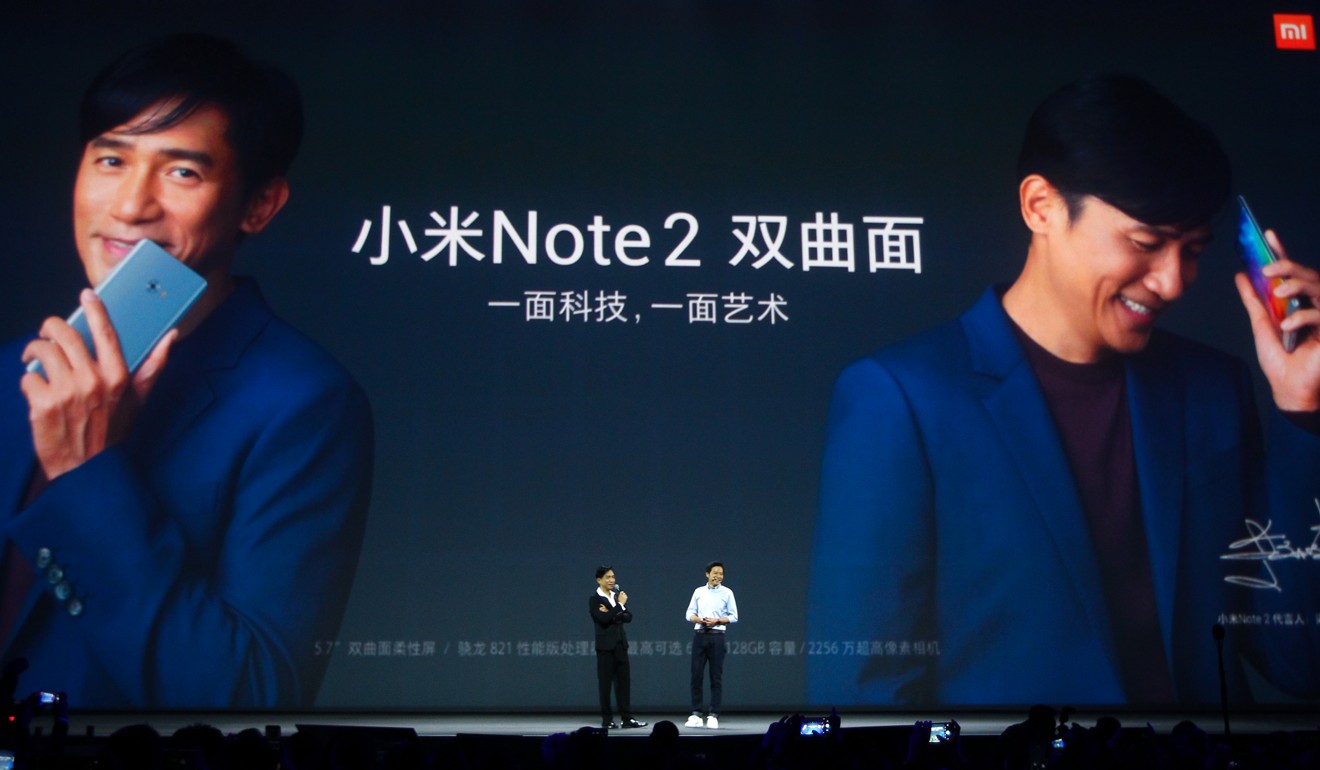
Xiaomi granted US$1b loan to drive its global expansion
Beijing-based smartphone supplier says Hong Kong subsidiary has reached a three-year agreement with group of 18 banks, led by Deutsche Bank and Morgan Stanley
Xiaomi, the once high-flying Chinese electronics start-up, is looking to soar again and put its global expansion on track after obtaining a US$1 billion loan from a syndicate of banks.
The Beijing-based smartphone supplier, ranked by Counterpoint Research as the world’s sixth-largest in the second quarter, said on Friday its Hong Kong subsidiary has reached a three-year loan agreement with a group of 18 banks, led by Deutsche Bank and Morgan Stanley.
Lei Jun, Xiaomi’s founder, chairman and chief executive, said in a statement the fresh funding would bolster the company’s international expansion as well as the initiative to integrate its online and offline retail operations.

Xiaomi had previously secured a three-year term, US$1 billion syndicated loan in 2014.
Lei recently pointed out that Xiaomi’s global business, which encompasses more than 40 countries and territories, has entered an “era of rapid growth”.
Earlier this month, Xiaomi estimated it shipped 23.2 million smartphones in the second quarter, up 70 per cent from the previous quarter ended March 31 – a new quarterly shipment record for the company since its first smartphone was introduced in August 2011.
It also showed that Xiaomi was in a position to make a strong comeback after lagging behind innovative mainland Chinese rivals Huawei Technologies, Oppo and Vivo the past several quarters.
The steady decline of Xiaomi’s smartphone sales last year prompted Richard Windsor, a senior analyst at Edison Investment Research, to put the start-up’s valuation at just US$3.6 billion.
That was a steep plunge from the widely reported US$45-billion valuation of Xiaomi in 2014.
Windsor lifted his valuation to US$5 billion in January, as Xiaomi mustered its resources to regroup and target 100 billion yuan in revenue this year.
“There are multiple areas where Xiaomi needs to beef up its arsenal to expand beyond China and India, as well as compete with Huawei, Oppo and Vivo on a global scale,” Neil Shah, the research director at Counterpoint told the South China Morning Post.
The loan will certainly help the company’s expansion in countries such as Russia and Mexico, which it entered recently, as well as certain other markets in Europe, South Asia and the Middle East
“The loan will certainly help the company’s expansion in countries such as Russia and Mexico, which it entered recently, as well as certain other markets in Europe, South Asia and the Middle East.”
Xiaomi has been focused on building up the number of its bricks-and-mortar retail stores to complement its online retail platform.
In April, Lei said the company expects to generate 70 billion yuan in sales from its physical stores in the next five years.
It reportedly has 137 stores worldwide, and plans to open 2,000 more on the mainland and in various overseas markets in the next three years.
Counterpoint’s Shah said Xiaomi “should learn from LeEco, pursue a prudent expansion strategy, and not burn cash on exorbitant marketing to match Huawei, Oppo and Vivo”.
Cash-strapped internet conglomerate LeEco has retreated from an ambitious expansion in the United States and abandoned its US$2 billion purchase of American television maker Vizio amid a mountain of debt, huge losses and court orders freezing its assets.
“Part of Xiaomi’s new loan should go towards building quality intellectual property, and meaningful research and development,” Shah said.
“It should also license IP to enter key western markets, such as the US and Britain, to protect itself from any patent lawsuits there.”
Earlier this month, Xiaomi entered a patent licensing and purchase deal with Nokia. That followed Xiaomi’s cross-license and patent transfer agreement with software giant Microsoft in May last year.
Xiaomi said on Friday it currently has 4,806 patent assets, of which 2,404 are international, which provide a strong foundation for its global expansion plans.

